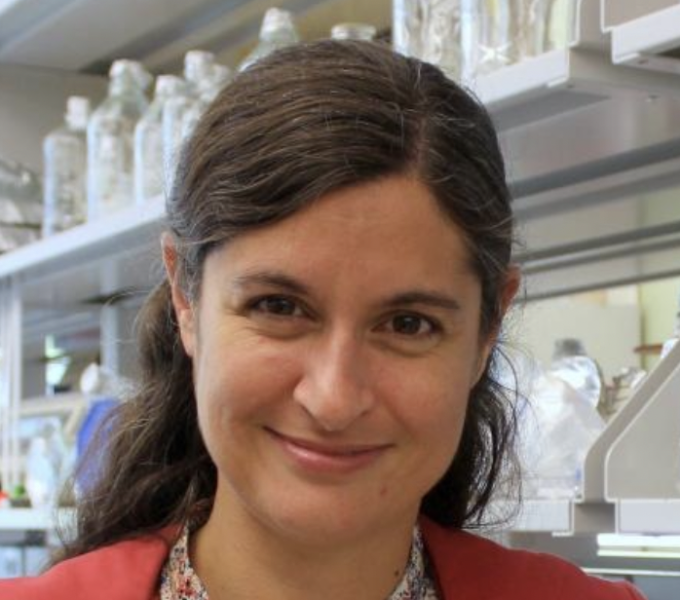Affiliated Faculty
This list of affiliated investigators can help you identify potential research mentors at the University of Pittsburgh. PSTP students can, and do, work with mentors not on this list, but the investigators featured below have expressed interest in hosting PSTP students in their laboratories.

The Ahmari Lab investigates the molecular, cellular, and circuit mechanisms underlying repetitive and compulsive behaviors in preclinical models and translates findings into the clinic through collaborative research studies in people with OCD.

Cellular and Molecular Basis of Neurodegeneration

Neurophysiology of sensory-motor coordination, brain-machine interfaces

Development, plasticity and regeneration of neural circuits

We examine the role of the endocannabinoid system in symptoms and outcomes associated with schizophrenia and cannabis use, using cellular and molecular techniques to study human and rodent samples, as well as behavioral methods to study the functional outcomes of changes in the endocannabinoid system.

Redox signaling & autophagy in neuroprotection and neurodegeneration; Mitochondrial phosphoproteomics; Genetic & toxin models of Parkinson’s disease

Models of muscle disease causing muscular dystrophy and muscle atrophy; Translational research for treatment of muscle disease

The Cunningham Lab studies molecular and cellular mechanisms of protein assembly and trafficking in the mammalian auditory system with an ultimate goal of developing therapies for hearing loss.

Cellular and molecular mechanisms of central and peripheral nervous system development and plasticity

Steroid hormone action in neural stem cells and cancer

The molecular pathogenesis of neurodegeneration and aging
The neurobiology of schizophrenia and neurophysiological abnormalities during wakefulness and sleep in early course psychosis
Dopaminergic signal transduction in the central nervous system, dopamine role in regulating peripheral pancreatic insulin secretion

Our lab studies what human brain networks are doing using long-timescale recordings during real world behavior, as well as how our brains process social information during natural conversations.

Adult and pediatric epilepsy surgery; movement disorder surgery; neuro-oncology; general neurosurgery

Neurophysiology of basal ganglia system related to psychiatric disorders

My work focuses on understanding both normal and abnormal adolescent dendritic development using preclinical models, focusing on how excitatory dendritic arbors stabilize across adolescence and what the functional implications are of impairments in these processes.

Oxidative mechanisms associated with neurodegeneration

We investigate how alcohol and drug use regulate or disrupt mechanisms of synaptic plasticity within the prefrontal cortex and we aim to use this knowledge to develop breakthrough psychiatric medications.

The Johnson lab studies the physiology, biophysics, structure, pharmacology, and regulation of glutamate receptors

Alzheimer's; Neurodegenerative diseases

Functional architecture of the prefrontal cortex and schizophrenia

Brain basis of cognitive maturation through adolescence to adulthood

We are interested in the molecular mechanisms of psychiatric disorders with a particular focus on the role of the circadian clock in these disorders.

Focuses on mechanisms of synaptic plasticity in the neuromuscular system in both normal and disease conditions

The Olsen laboratory uses fruit flies, human cells, and mice to develop new therapies for Parkinson’s disease and related disorders.

Identification of neural correlates that underlie the symptoms of specific abnormalities in emotion processing in people with mood disorders

Stroke, motor control, proprioception, functional magnetic resonance imaging (fMRI), electroencephalography (EEG), biomarkers

Understanding the functional organization of spinal microcircuits using molecular genetic, electrophysiological, optogenetic & behavioral approaches

Understanding the functional organization of spinal microcircuits using molecular genetic, electrophysiological, optogenetic & behavioral approaches

Mechanisms and functional role of endocytic trafficking of EGF receptor in cancer cells and the dopamine transporter in the brain

The control of voluntary movement by the cerebral cortex; The functional organization of the basal ganglia and cerebellum; Unraveling the circuitry of the central nervous system

Central neural control of the autonomic nervous system and cardiovascular function; neurobiology of nicotine pharmacology

Loss and altered plasticity of auditory cortex synapses in schizophrenia; Mediators of vulnerability to psychosis in Alzheimer disease

We study the molecular neurobiology and pharmacology of chronic pain and substance misuse.

We study synaptic mechanisms and their role during normal and pathological sensory processing (tinnitus).

Brain imaging of neuronal, metabolic and vascular function and dysfunction

Designed receptors as therapeutic targets for pain; Mechanisms of low-affinity drug action; Mapping of unconscious brain; Stem cell therapy for stroke
